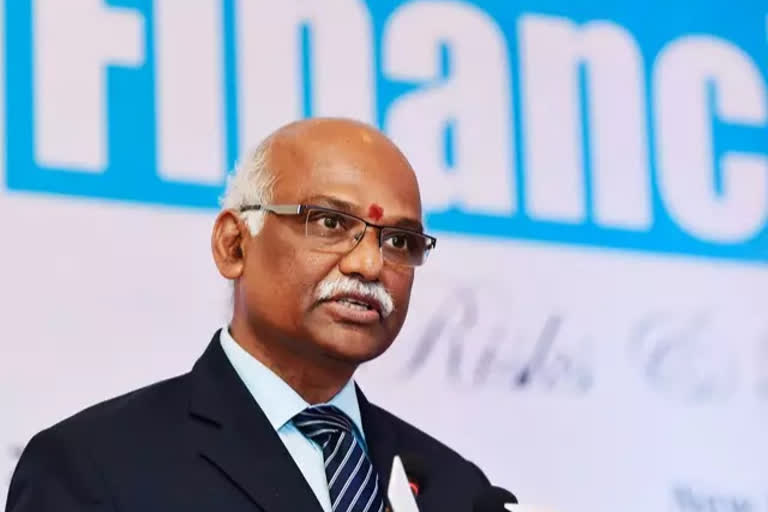New Delhi: With the possibility of some relaxation in the lockdown in the next few days, the loss to the Indian economy and the road ahead have been discussed among the experts. Economists believe that despite massive losses, Indian economy will be able to rebound very fast provided the country is able to attract the multinational companies looking to relocate out of China and assure the foreign investors of good returns and growth if they invest into India's capital markets.
“The initial pick up is already there in the capital market. Going forward it is going to be different because India's growth story is going to be distinctively on the positive side vis-a-vis rest of the world,” said R Gandhi, former deputy governor of Reserve Bank of India.
Participating in a webinar organised by Mumbai based Electronic Payment & Services (EPS), R Gandhi said there are several factors that will work in favour of India vis-à-vis other countries.
In order to tackle the adverse impact of the COVID-19 on the economy, the US Federal Reserve and several other Central Banks in advanced economies have announced liquidity-boosting measures.
“Advanced economies are awash with capital and all of them will be looking around for the possibility of having strong returns,” said the former banker.
“They will invest where they see strong possibility of good returns and growth, and there India will be ranking at the top,” R Gandhi said while explaining the competitive advantage India will have over other emerging economies in attracting the surplus liquidity available in the global market.
China's loss could be India's gain
R Gandhi, who headed economy and currency divisions of the Reserve Bank of India for several years, says India will also benefit from the possible backlash against China.
Several western leaders, including the US President Donald Trump, have blamed China for not being transparent about the detection of the SARS-CoV-2 virus during its initial days that helped the virus to reach most countries in the world in a very short span of time, wreaking havoc in several advanced economies like the USA, UK, France, Germany, Italy and Spain among others.
“Second factor is the reaction, whether it is an emotional reaction or otherwise vis-a-vis China,” said R Gandhi.
He, however, cautions that India may miss this opportunity if it fails to attract the multinational companies that are considering to exit from China.
Read more: EPFO allows firms to file PF returns without simultaneous payment of dues
“It is not going to be an automatic transfer from China to India. But certainly India will be in an advantageous position vis-a-vis China for the global funds that are looking around to invest,” he pointed out.
According to reports, a large number of companies, that are moving out of China, are seriously considering or investing into South East Asian countries like Vietnam, Thailand, Indonesia and Malaysia among others.
Economists like R Gandhi are aware about the other attractive investment destinations that will wean away any potential investors looking to exit China.
R Gandhi says there is initial indication from the government that it will be very supportive in getting the business that China may be losing.
Large domestic market makes India attractive
India’s diversified production base and large domestic consumption make India an attractive option for foreign investors. Indian industry can produce a variety of goods which have a ready market within the country.
“The country doesn't have to depend on the export market. A momentum is there and a large customer base is available which will attract international funds to come to India,” said Mr Gandhi in response to a question about the future of Indian stock markets.
He says foreign investors will primarily come through the route of foreign portfolio investment (FPI) but it will also be extended to the foreign direct investment (FDI) route.
“If you look at broad trends over the three months, six months or more then Indian capital market is going to be thriving,” observed Mr Gandhi.
(Article by Krishnanand Tripathi)



